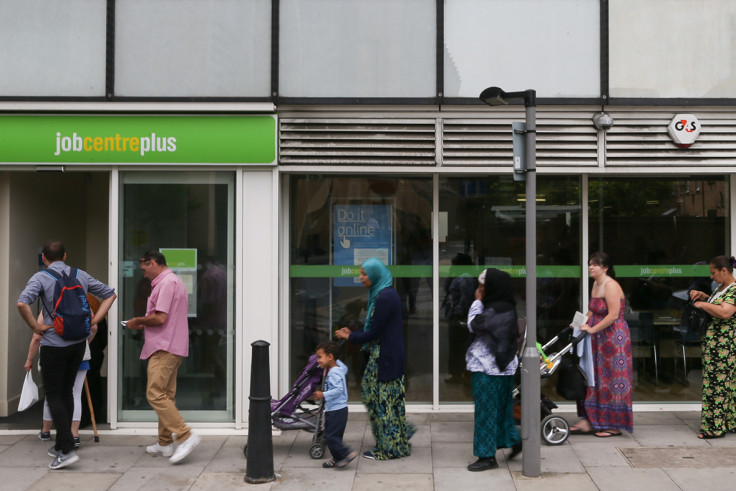UK unemployment rate hits historic low as wages grow more than expected
Unemployment rate falls to 4.4% in the quarter to June, while average weekly wages rise 2.1%.

Britain's unemployment rate hit a new low in the quarter to June, while wages increased more than expected but continued to lag behind inflation, new figures have shown.
The jobless rate fell by 64,000 to 1.49 million in the three months to June, according to the Office for National Statistics (ONS), while the unemployment rate fell to 4.4%, down from 4.5% recorded in the previous month, which was the lowest on record since 1975.
Meanwhile, average weekly earnings rose by 2.1% year-on-year, beating expectations for a 1.8% reading and higher than the upwardly revised 1.9% gain recorded in the previous month. However, while the figure was better than expected, wage growth remained well behind inflation, which held steady at 2.6% in July after hitting a four-year high of 2.9% in May.
When the impact of inflation is factored in, however, real weekly wages fell by 0.5% compared with a year earlier.
Meanwhile, the number of employed workers rose less than expected, climbing by 125,000 to 32.1 million in the quarter to June, compared to the previous three months. The figure was 338,000 higher than in the corresponding period last year and higher than analysts' expectations for an 97,000 gain.
The number of unemployed people, on the other hand, fell by 57,000 from the previous quarter to 1.48 million, 157,000 fewer than in the corresponding period a year earlier.
The ONS added the employment rate – the proportion of people aged from 16 to 64 who were in work – was 75.1%, the highest since comparable records began in 1971.
"These statistics show that record levels of people are in work across the country and earning a wage, which is great news," said the Minister for Employment, Damian Hinds.
"Over the past year the rise in employment has been overwhelmingly driven by permanent and full-time jobs, as employers continue to invest in Britain's strong economy.
"The task now is to build on this success through Jobcentre Plus and our employment programmes so that everybody can benefit from the opportunities being created."
However, analysts warned the persistently low wages remained an issue.
"For the past ten years our earnings have flatlined," said Maike Currie, investment director for personal investing at Fidelity International.
This could be down to automation, more people working part-time and the growing cohort of self-employed people with limited earning power, such as Uber and Deliveroo drivers in the so-called 'gig economy'.
"Unfortunately the outlook doesn't look much brighter for Britain's workers. The Bank of England has pointed out that uncertainty over the economic outlook may be affecting companies' willingness to raise pay - it expects regular pay growth to remain subdued for the rest of 2017."
© Copyright IBTimes 2025. All rights reserved.






















